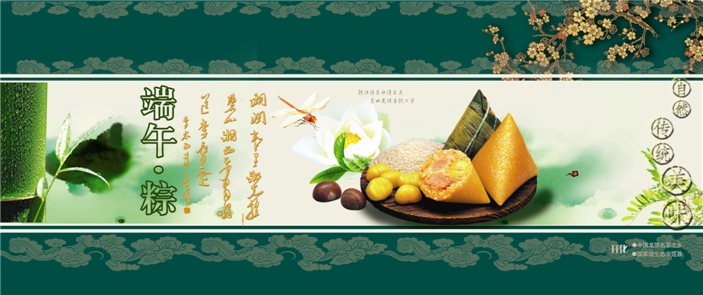| Home > Living In China |
Having a good time
In order to keep in contact with old classmates, Huo Zhihua, a 25-year-old recent graduate from Hohai University School of Law in Nanjing, Jiangsu Province, started a traditional Chinese "lion dancing" team.
It also doesn't hurt that they also get some exercise and make a little 'scratch' on the side.
"Sometimes we feel a lot of pressure and lonely living in the big city," said Huo. "Coming together like this helps."
The 29-member dance troupe consists mostly of his former alumni now working in Nanjing as young professionals, including lawyers, civil servants and managers who welcome a chance to relax and catch up with old friends.
"It's all about getting together and catching up," said Zhang Huiqian, Huo's former classmate and a lawyer in Nanjing.
"Living expenses, high housing costs and other pressures are a lot to deal with. But after putting our hearts into this and encouraging each other at these 'reunions,' we all feel much better," Zhang added.
Working as a coordinator at a local event-planning firm, Huo found an increasing demand for traditional performance troops in Nanjing for grand openings, conferences or private events.
"Traditional artists like these are becoming rare nowadays," he said.
Also seeing the team's market potential, Huo began booking his dancers at local events during weekends and holidays. As of today, Huo's team has performed over 50 times, earning about 60,000 yuan ($8,788) total (3,000 each) for their "round table" reunions.
But to these lion dancers, making a profit is a bonus. The real payoff comes in having an opportunity to gather every week for a good meal.
"If we spend the money we earned together on our good friends' reunion party, how meaningful it is!" said Zhang.
Usually, four lions are needed to perform a proper ceremony, requiring eight dancers. But Huo rotates the lineup at different events so everyone gets a chance to meet up during the month.
Which for Huang Xiaoxing, a Guangdong native who only gets to go back home once a year, makes these reunions even more important.
"I have so many chances to meet up with my classmates that it gives me a feeling of family here," he said.
In order to further his understanding of lion dancing, Huo went into the countryside of Liuhe district to seek out a farmer who is known to be a master of lion dancing.
According to Huo, the farmer was surprised to see a young college student with a desire to practice the art, saying "My son would rather go out to be a migrant worker than learn this from me."
By sparking interest in the art with college students, Huo said he is carrying on the tradition of lion dancing from "generation to generation".
"Lion dancing is such a great tradition for young people to practice," says Huo. "I pass it on through ways such as recruiting undergraduates to my team, because it is not only a commercial business, but also a friendship business."
More than half of the team studied lion dancing in university extracurricular clubs, who show the ropes to the newcomer "lion cubs."
Tao Lu, a law senior at Hohai University, said that he takes every possible chance to learn from his "masters."
"From rolls and jumps to turning and dancing, I practice certain moves and steps all day, and am usually dead tired by the end," he said. "But every time I see the lion's movements, like licking or scratching its ear, I get so excited. I love this traditional art."
The Original 'Cats'
The lion dance can be traced back to the Three Kingdoms Period (220-280), where it has roots in Buddhism. Often associated with the more elaborate dragon dance, lion dancing is used to ward off or exorcise evil spirits, especially around the Chinese Lunar New Year.
Generally, Lion dancing is split into two major styles based on geography:
The Northern style (originating in Zhejiang Province) distinguishes itself by incorporating martial arts and acrobatics, where the two-man dance teams coordinate movements such as walking on high piles (plum blossom piles) in costume, balancing on balls and synchronized jumping.
The Southern style is especially prevalent in Guangdong Province, where performers act out more playful and endearing feline "gestures" such as mimicking a lion scratching, shaking its head and grooming itself.
Many of these special gestures are symbolic, such as exaggerated blinking, meaning the lion has just awoken, signifying a new beginning or holding its claws together in front of its chest, symbolizing making a pilgrimage.
During the Chinese Lunar New Year, lion dancing teams perform "picking vegetables," where the dancer holding the lion's head jumps on the other's shoulders and acts out an attempt to pick a head of lettuce hanging high above.
A play on words in Chinese, lettuce (shengcai) has a similar pronunciation to "making a fortune", and the dance symbolizes prosperity for the new year.
Custom
 more
moreUniversity
Beijing Foreign Studies University
BFSU-SolBridge International School of Bu...
Tianjin University
Tianjin University is the first university in China founded in 1895 ...
Beijing International Arts School
Beijing International Arts School is a public secondary school appro...
Primary&secondary
Beijing International Arts School
We are qualified to recruit students from ho...
Beijing October First School
Offers Chinese secondary education and no...





 print
print  email
email  Favorite
Favorite  Transtlate
Transtlate 







